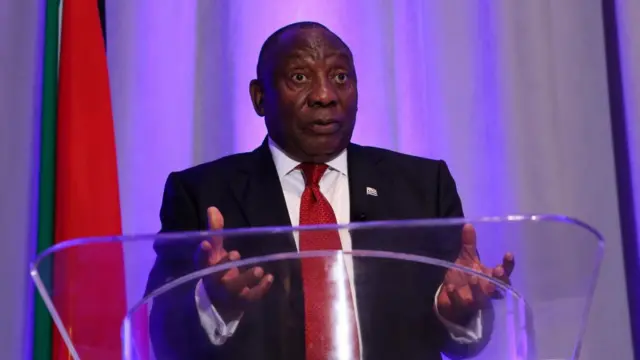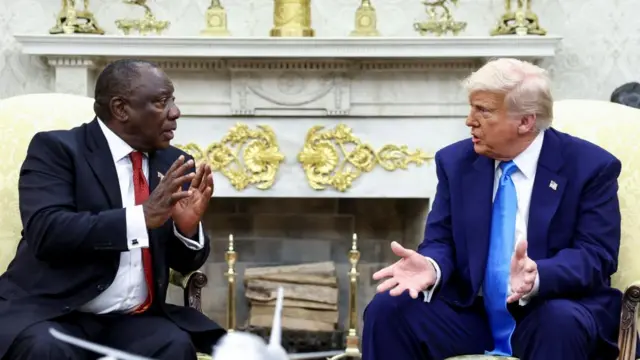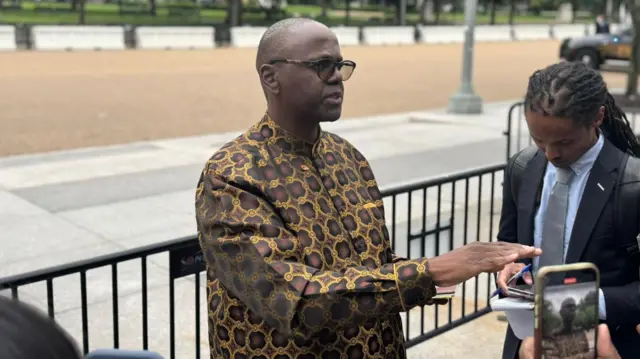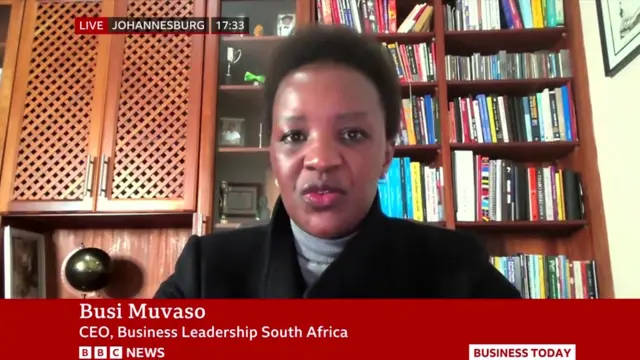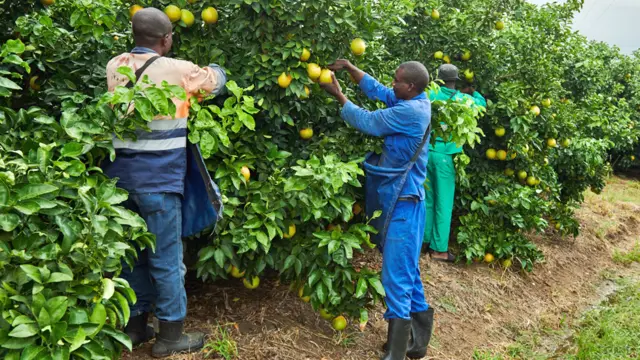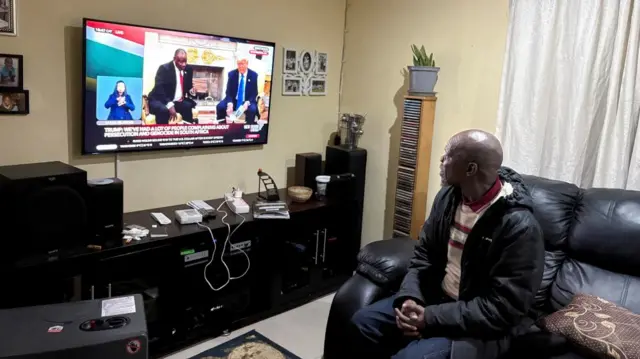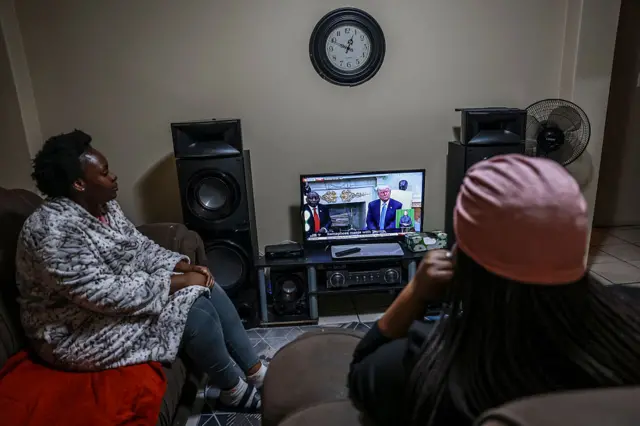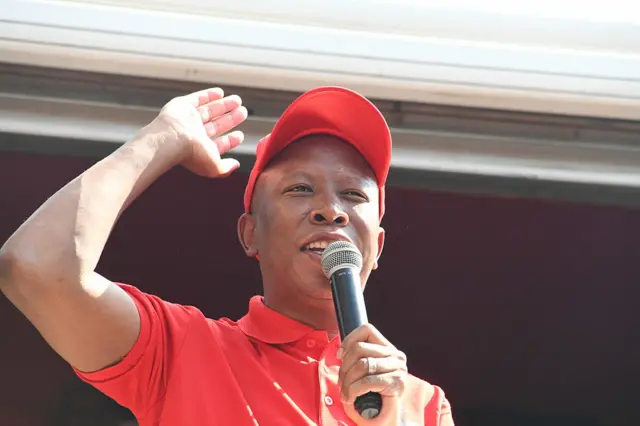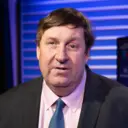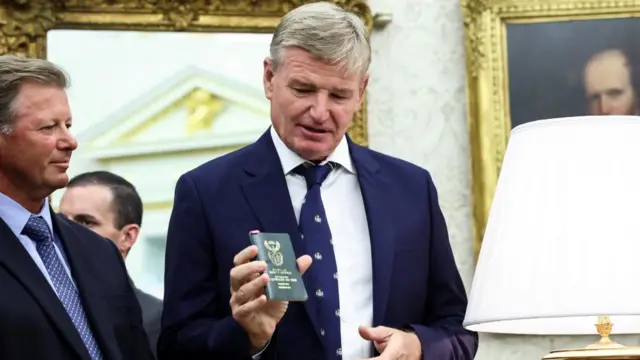So... how did it go?published at 22:15 BST 21 May
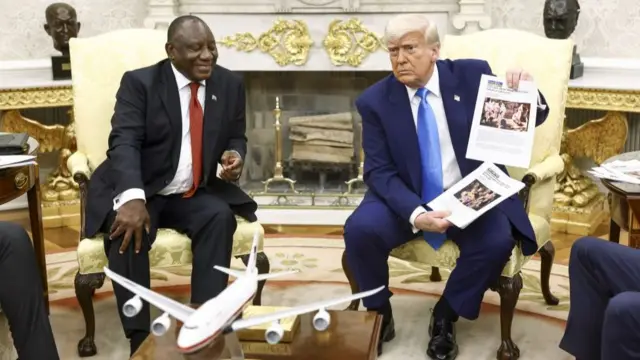 Image source, EPA
Image source, EPA"Death, death, death...horrible deaths," Trump says while going through articles about attacks on white farmers
A much-anticipated meeting between South Africa's President Cyril Ramaphosa and US President Donald Trump is over.
The encounter was at times - as expected - fiery. Trump confronted the South African leader with a video over discredited claims of a white genocide in South Africa.
The meeting was also littered with golf chat. Ramaphosa told Trump he brought a 14kg golf book as a gift, while South African golfer Ernie Els told the meeting "two wrongs don't make a right".
Though visibly uncomfortable from the ambush, Ramaphosa remained calm, saying the chants of "shoot the Boer" shown in the video don't represent government policy.
And upon leaving the White House, he told reporters the meeting went "very well".
- For more analysis of the day's events, check out our news story here: Trump ambushes S African leader with claim of Afrikaners being 'persecuted'
- Watch: Moment Trump ambushes Ramaphosa with video
- Is there a genocide of white South Africans as Trump claims?
